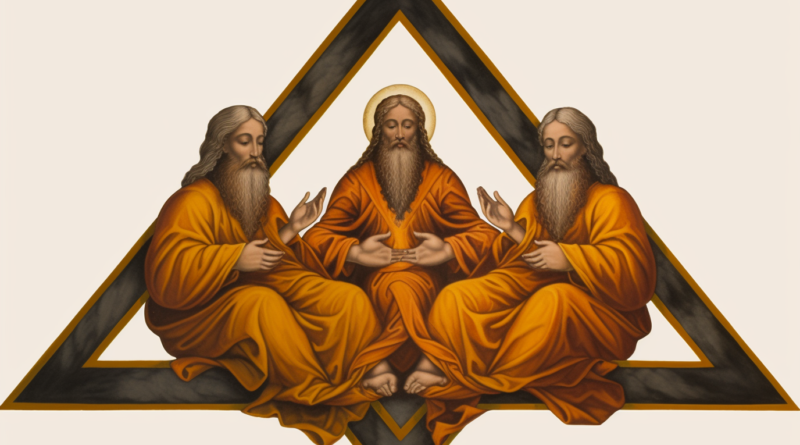Unmasking the Trinity (Part 4) – The Holy Spirit
In the effort to articulate a compelling argument for the unity of God, we delve into the dynamic and often nuanced interpretation of biblical texts, both from the Old and New Testaments. Our discussion emanates from the fundamental premise that these texts, deeply rooted in Jewish cultural context, form an integrated, holistic message about the nature of God. With this approach, we align ourselves with scholars like Richard Bauckham, who contends that New Testament writings belong inherently to their Jewish milieu, rather than being seen through the lens of Hellenic thought, a cultural context that has traditionally shaped mainstream Trinitarian doctrine.
The first step towards understanding the unity of God lies in the concept of God’s singularity as depicted in the Old and New Testaments. The apostles, in their teachings, underscored the distinction between God the Father and Jesus Christ, with the latter presented as the divinely ordained agent of God but not God himself. This distinction is integral to the foundational teachings of Christianity and cannot be dismissed or diluted without undermining the essential nature of Christ’s mission and sacrifice. The need for simplicity and parsimony, as expressed in the philosophical principle of Occam’s Razor, supports this interpretation. We are urged to favour the simplest explanation until necessity compels us to accept greater complexity.
This simplicity and unity of God is further reflected in the conceptualization of the Holy Spirit throughout biblical text. In the Old Testament, the Holy Spirit is predominantly represented as an active force or property of God, not as a separate divine person. There are instances where the Holy Spirit seems to be personified, such as in Isaiah 63:9-10 and Proverbs 8, but these instances are nuanced and open to interpretation. It’s crucial to note that personification is a common literary device in the Hebrew Bible, used to breathe life into abstract ideas or forces. Thus, the personification of the Holy Spirit does not necessarily imply personhood, but rather, it might reflect Jewish monotheistic tendencies, maintaining the unity of God.
Furthermore, the New Testament continues the theme of unity and simplicity by presenting the Holy Spirit as the power of God, rather than a separate divine person. Even in instances where the Holy Spirit is described using verbs implying personality or independent volition, such as “speaks” or “decides,” the simplest interpretation, guided by Occam’s Razor, sees these as poetic or metaphorical expressions of God’s power. For instance, in the story of Ananias and Sapphira (Acts 5), lying to the apostles, who were imbued with the Holy Spirit, was tantamount to lying to God. However, this does not necessarily imply the Holy Spirit is a person, but rather underscores the unity of God by emphasizing that His power and presence are manifest in His Spirit.
This understanding extends to the apostles’ experiences with the Holy Spirit. They interacted with it not as a distinct person of God, but as God’s power, authority, and guiding force. Despite the personal language used by Jesus in John to describe the Holy Spirit, Max Turner notes that there is no suggestion that the Spirit is experienced as a divine person. In fact, the Holy Spirit reveals only Christ and the Father, not itself, thereby further emphasizing God’s unity.
A theological reflection on Revelation 4 & 5 also substantiates this argument. The Apostle John’s divinely inspired vision presents God as a single being on a throne, distinct from Jesus, and without any clear representation of the Holy Spirit. This depiction is consistent with a unified, monotheistic conception of God, where the Holy Spirit is an extension of God’s power and presence rather than a separate entity.
In conclusion, a holistic reading of both the Old and New Testaments, mindful of the Jewish cultural context, presents a compelling argument for the unity of God. Rather than being separate divine persons, Jesus and the Holy Spirit are presented as integral aspects of God’s interaction with humanity – the former as His appointed agent and the latter as His powerful presence and force. This understanding not only respects the cultural and literary context of the Bible but also adheres to the principle of parsimony, revealing a picture of God that is unified, consistent, and profoundly powerful.

